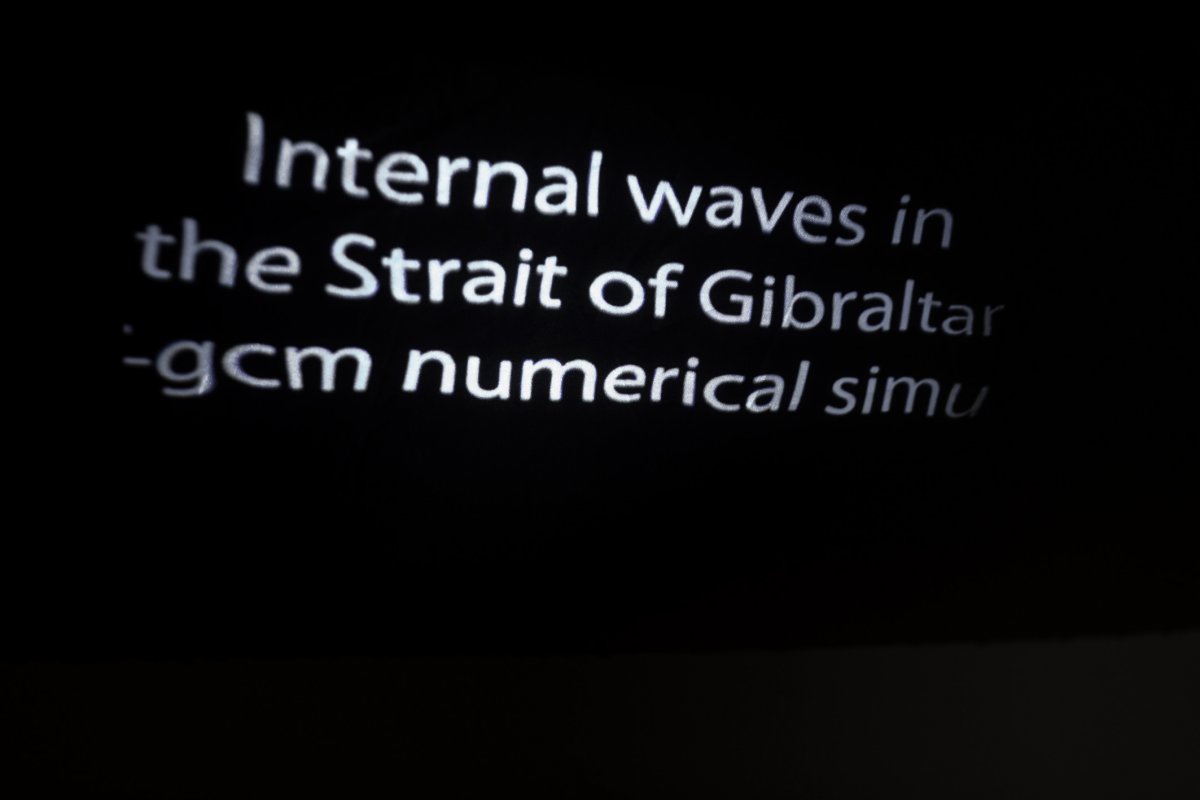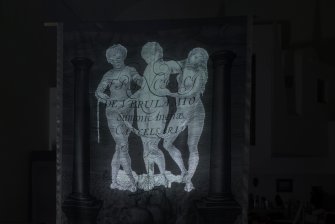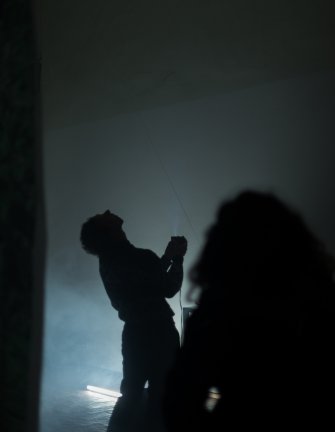Internal Waves in the Strait of Gibraltar
Leandro Nerefuh
In Internal Waves in the Strait of Gibraltar, attraverso la raccolta di segni, suggestioni, simboli e geografie, Libidiunga Cardoso racconta la storia di un viaggio attraverso lo Stretto di Gibilterra visto dalle coste della foresta amazzonica. Punto d'uscita dal Mediterraneo verso il vasto mondo degli oceani, dove le maree convogliano il magnetismo e i tremori terrestri, lo stretto di Gibilterra è stato un varco magico tra epoche e culture, un portale tra realtà e mito. Lì troviamo gli antichi pilastri di Eracle, la Porta dell'Occidente (Bab Al Maghrib), o Il Passaggio (Al-Zuqaq), denominazione che riecheggia il Passaggio di Mezzo e gli orrori della tratta atlantica degli schiavi africani. In quanto plus ultra, dal punto di vista del Sacro Romano Impero, lo stretto di Gibilterra significava una porte spalancata al colonialismo, al capitalismo e al patriarcato - la santa trinità della civiltà occidentale che dal XVI secolo in poi dilagherà su tutti i continenti.
Un ringraziamento a Samar Kehdy e Daniel Blanga-Gubbay che hanno istigato questo lavoro.
In Internal Waves in the Strait of Gibraltar, by way of assembling signs, suggestions, symbols, and strategic geographical locations, Libidiunga Cardoso tells the story of a particular journey across the Strait of Gibraltar, as seen from the shores of the Amazonian coast. Exit of the Mediterranean for a world of oceans, round and vast, made of waters tides conduits magnetism and earth temblors, the Strait of Gibraltar has been a magical gateway across cultures and times. A portal between reality and myth, there we find the ancient pillars of Heracles, the Gate of the West (Bab Al Maghrib), or The Passage (Al-Zuqaq), a denomination that will later be echoed in the horrors of the transatlantic Middle Passage. Plus Ultra: from the perspective of the Holy Roman Empire, the strait of Gibraltar meant open doors to colonialism, capitalism and patriarchy - the holy trinity of western civilization from the sixteenth century onwards.
Special thanks to Samar Kehdy and Daniel Blanga-Gubbay who have instigated this work.











